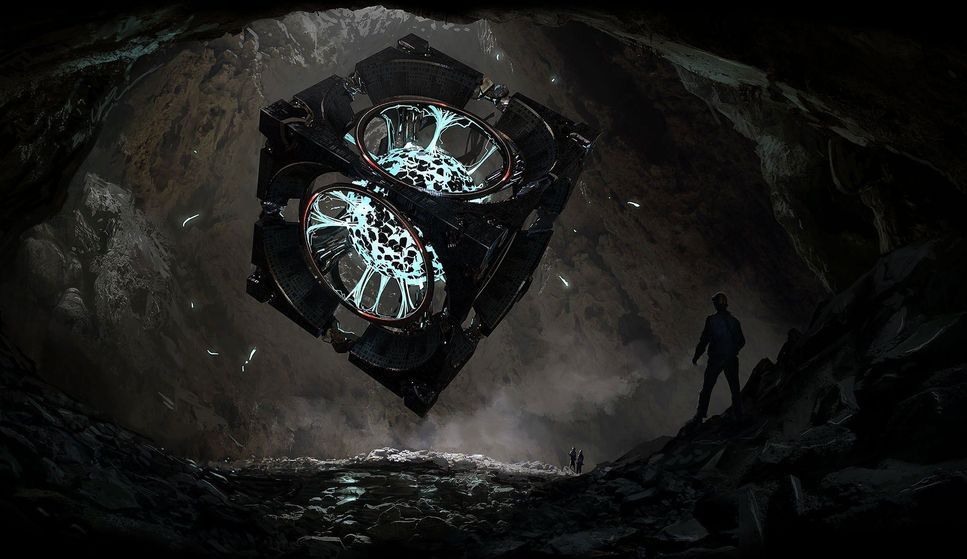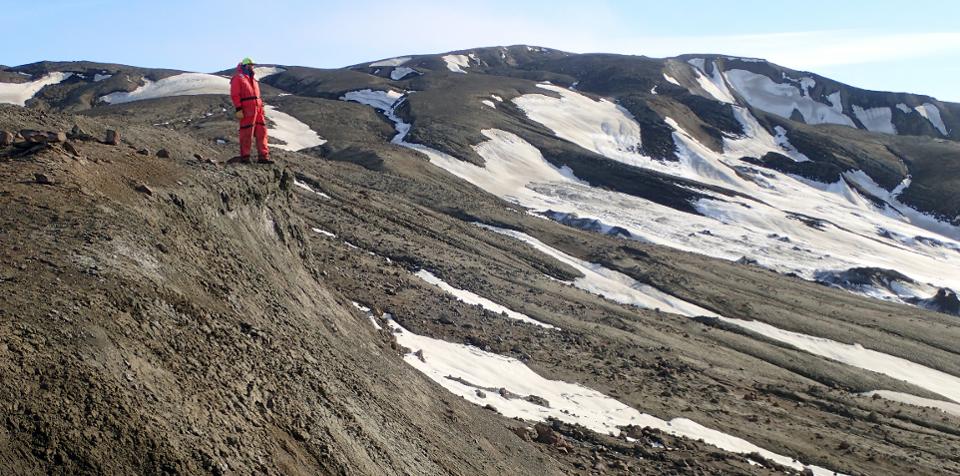Circa 2017
One of the options that the United States is looking at to counter North Korea’s nuclear-tipped ballistic missiles is an experimental weapon called CHAMP.

Circa 2017
One of the options that the United States is looking at to counter North Korea’s nuclear-tipped ballistic missiles is an experimental weapon called CHAMP.

Scientists recently identified the oldest material on Earth: stardust that’s 7 billion years old, tucked away in a massive, rocky meteorite that struck our planet half a century ago.
This ancient interstellar dust, made of presolar grains (dust grains that predate our sun), was belched into the universe by dying stars during the final stages of their lives. Some of that dust eventually hitched a ride to Earth on an asteroid that produced the Murchison meteorite, a massive, 220-lb. (100 kilograms) rock that fell on Sept. 28, 1969, near Murchison, Victoria, in Australia.

Fun topic, real or not.
Dan Burisch, a doctorate in microbiology and former worker of the secret military forces of the United States, details great puzzling information about extraterrestrials, the Orion Cube, time machines, secret government plans and human extinction.

Dan Burisch, born in California in 1964, studied microbiology and psychology at the University of Las Vegas, Nevada. He graduated in 1986 and did a Ph.D. in microbiology in 1989 in the state of New York. A sports fan since childhood, he played basketball. But his true passion was science and five years later he was given his first microscope, after which he later became the youngest member of the microbiology society of Los Angeles.

For a time 20 years ago, millions of people, including corporate chiefs and government leaders, feared that the internet was going to crash and shatter on New Year’s Eve and bring much of civilization crumbling down with it. This was all because computers around the world weren’t equipped to deal with the fact of the year 2000. Their software thought of years as two digits. When the year 99 gave way to the year 00, data would behave as if it were about the year 1900, a century before, and system upon system in an almost infinite chain of dominoes would fail. Billions were spent trying to prepare for what seemed almost inevitable.
Twenty years ago, the world feared that a technological doomsday was nigh. It wasn’t, but Y2K had a lot of prescient things to say about how we interact with tech.

An international research group has applied methods of theoretical physics to investigate the electromagnetic response of the Great Pyramid to radio waves. Scientists predicted that under resonance conditions, the pyramid can concentrate electromagnetic energy in its internal chambers and under the base. The research group plans to use these theoretical results to design nanoparticles capable of reproducing similar effects in the optical range. Such nanoparticles may be used, for example, to develop sensors and highly efficient solar cells. The study was published in the Journal of Applied Physics.
While Egyptian pyramids are surrounded by many myths and legends, researchers have little scientifically reliable information about their physical properties. Physicists recently took an interest in how the Great Pyramid would interact with electromagnetic waves of a resonant length. Calculations showed that in the resonant state, the pyramid can concentrate electromagnetic energy in the its internal chambers as well as under its base, where the third unfinished chamber is located.
These conclusions were derived on the basis of numerical modeling and analytical methods of physics. The researchers first estimated that resonances in the pyramid can be induced by radio waves with a length ranging from 200 to 600 meters. Then they made a model of the electromagnetic response of the pyramid and calculated the extinction cross section. This value helps to estimate which part of the incident wave energy can be scattered or absorbed by the pyramid under resonant conditions. Finally, for the same conditions, the scientists obtained the electromagnetic field distribution inside the pyramid.

The Milky Way could be teeming with interstellar alien civilizations, according to a new study. We just don’t know about it because they haven’t paid us a visit in 10 million years.
The study, published last month in The Astronomical Journal, posits that intelligent extraterrestrial life could be taking its time to explore the galaxy, harnessing star systems’ movement to make star-hopping easier.
The work is a new response to a question known as the Fermi Paradox, which asks why we haven’t detected signs of extraterrestrial intelligence.
There are only two northern white rhinos left worldwide, both of them female. Saving this representative of megafauna from extinction seems impossible under these circumstances, yet an international consortium of scientists and conservationists just completed a procedure that could enable assisted reproduction techniques to do just that. On August 22, 2019, a team of veterinarians successfully harvested eggs from the two females who live in Ol Pejeta Conservancy in Kenya — a procedure that has never been attempted in northern white rhinos before. The eggs will now be artificially inseminated with frozen sperm from a northern white rhino bull, and in the near future the embryo will be transferred to a southern white rhino surrogate mother. The successful procedure was a joint effort by the Leibniz Institute for Zoo and Wildlife Research (Leibniz-IZW) Berlin, Avantea, Dvur Kralove Zoo, Ol Pejeta Conservancy and the Kenya Wildlife Service (KWS).
With neither Najin and Fatu, the two northern white rhino females, able to carry a pregnancy, the future of the northern white rhino now rests solely on pioneering artificial reproduction techniques. The successful harvesting of their eggs means that scientists are one step closer to being able to save the northern white rhino from complete extinction.
The procedure was the result of years of research, development, adjustments and practice. “Both the technique and the equipment had to be developed entirely from scratch,” says Prof. Thomas Hildebrandt from Leibniz-IZW and Dr. David Ndeereh from the Kenya Wildlife Service (KWS), who headed the procedure. “We were able to harvest a total of 10 oocytes — 5 from Najin and 5 from Fatu — showing that both females can still provide eggs and thus help to save these magnificent creatures.”


Biological weapons could be built which target individuals in a specific ethnic group based on their DNA, a report by the University of Cambridge has warned.
Researchers from Cambridge’s Centre for the Study of Existential Risk (CSER) said the government was failing to prepare for ‘human-driven catastrophic risks’ that could lead to mass harm and societal collapse.
In recent years advances in science such as genetic engineering, and artificial intelligence (AI) and autonomous vehicles have opened the door to a host of new threats.

Asteroids are coming?
The asteroid, dubbed 2019 WR3, has been directly observed some 74 times by NASA since it was spotted in the skies on November 27, so the space agency could calculate its size, speed and trajectory, and determine the threat level.
NASA now believes the space rock measures between 76 and 170 meters (249 and 557 feet) and is travelling at speeds of 27,036kph (16,799mph).